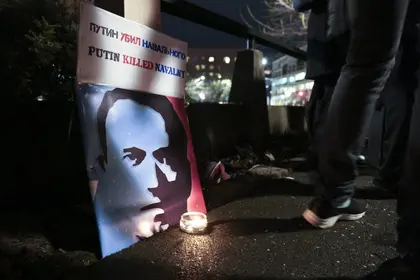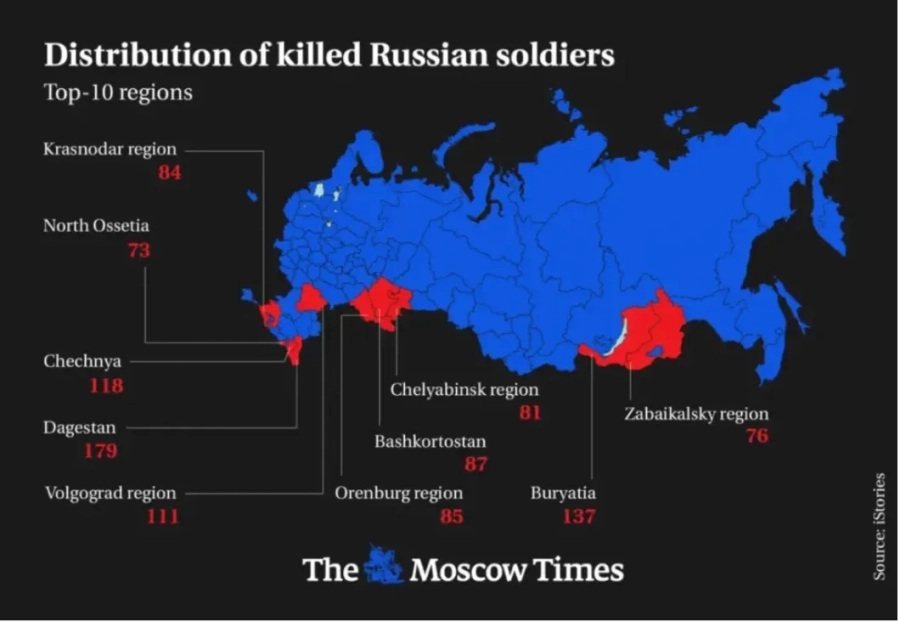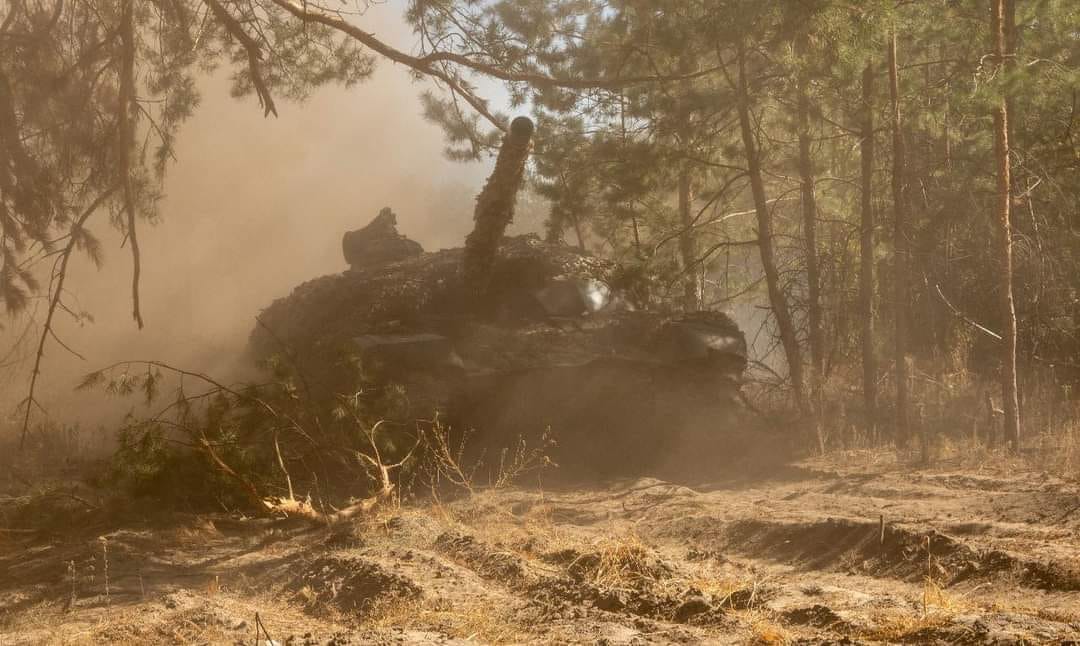In February 1992, I interviewed in Moscow a Canadian of Russian-Georgian descent who had opened several computer stores to cash in on Russia’s newly democratic, free, and capitalist incarnation. Instead of opportunity, he found chaos and calamity and left. “My workers lie and steal from me. A manager was murdered for her wallet,” he told me. “This country doesn’t need free enterprise. It needs a psychiatrist on every corner. For generations, these people were ordered to turn in relatives or friends who opposed the government.
They are like abused children and have the same symptoms: They don’t trust anyone and are not trustworthy themselves.” Tragically, little has changed. Russians are controlled by the Kremlin and lack enough trust to create a civil society of non-governmental organizations and institutions that can advance their collective interests independent of the State. By contrast, Ukraine had a powerful civil society.
JOIN US ON TELEGRAM
Follow our coverage of the war on the @Kyivpost_official.
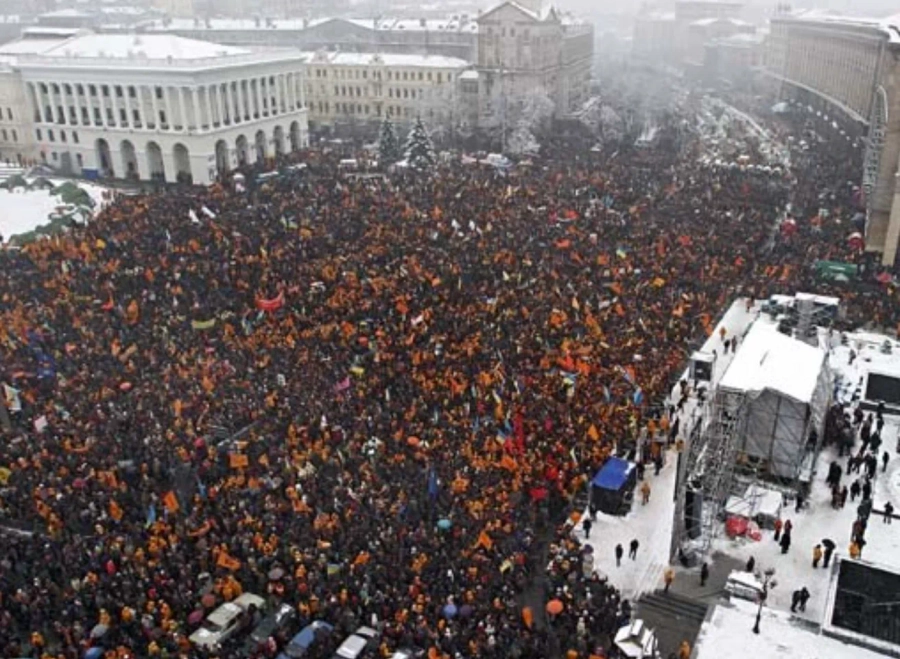 Ukraine’s million-strong Orange Revolution 2004 for weeks overturned the rigged election of Putin’s puppet President.
Ukraine’s million-strong Orange Revolution 2004 for weeks overturned the rigged election of Putin’s puppet President.
In 2004 and 2014, more than one million Ukrainians spontaneously protested for weeks in Kyiv to reject Russia’s influence, corruption, and to join Europe. But this month, only a few thousand Russians paid their respects to martyred Alexei Navalny, and his family had difficulty getting a hearse, church, or cemetery to lay him to rest.
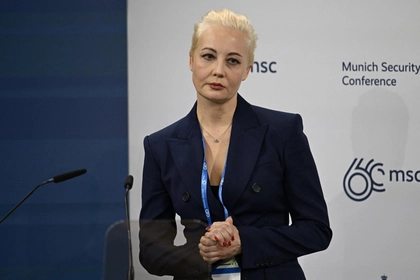
Navalnaya Admits Has ’No Plan’ Ahead of Russian Anti-War Berlin March
Without a civil society to push back, the Kremlin retains absolute power. Ironically, however, tyranny has united ethnic groups in colonies like Ukraine — and may help bring about other “revolutions” in Russia. However, they need help. The Russian “empire” can be weakened by stoking and financing “decolonization” movements, or separatism, among Russia’s 140 oppressed ethnic groups. Many have already started to organize and are building viable civil societies. But fires must be lit under their efforts to weaken and distract the central government.
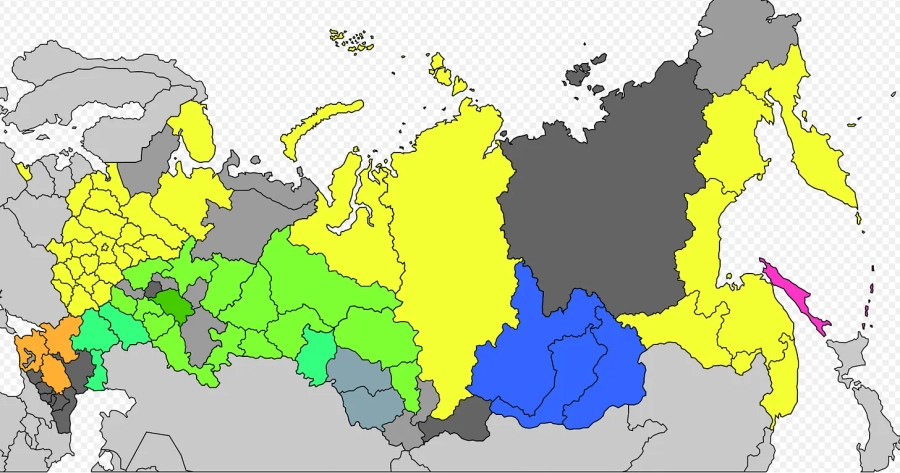 The Russian Federation’s large non-Russian ethnic groups by region: Yellow – Ukrainians; lawn green Tatars; green Kazakhs; orange – Armenians; blue Buryats; dark gray Germans; and pink Koreans. There are 140 in total.
The Russian Federation’s large non-Russian ethnic groups by region: Yellow – Ukrainians; lawn green Tatars; green Kazakhs; orange – Armenians; blue Buryats; dark gray Germans; and pink Koreans. There are 140 in total.
Many ethnic leaders are upset because Putin disproportionately recruits their men as cannon fodder in Ukraine. Soldiers are mostly Tatars, a Turkic ethnic group, who live in the Caucasus region (between the Black and Caspian Seas) as well as Mongols, a Central Asian ethnic group, who live in East Asia or North Asia (Siberia). Many have been press-ganged into joining, then thrown into battle without training or proper equipment. Casualties are horrendous and a “white scarves” movement has organized to protest comprised of women whose sons or husbands serve in the army under horrendous conditions or who have simply disappeared without a trace.
Russia’s 2021 census claims that 91 per cent of its 143.4 million people are Russian, but that’s misleading. The designation “Russian” on census forms is based on what language is spoken, not ethnicity. The reality is that there are tens of millions of members of minorities who speak Russian, but are from other ethnic groups. They live in poverty, are treated as second-class citizens, and they die. Journalist and activist Radjana Dugar-Deponte estimated that “the probability of Buryatis [Mongols in East Asia] dying in the Ukraine war is 275 times’ higher than for residents of Moscow.” Putin’s mobilization is not only a war effort. It is also ethnic cleansing.
Chess master and political activist Garry Kasparov, head of Free Russia Forum, believes the United States and the European Union are "afraid" of the possible dissolution of Russia if it loses the war in Ukraine but they should not be. If Russia loses the war, total dissolution of the Federation is unlikely. He speculated that regions which may separate (and already have viable civil societies) are the Republics of Tatarstan, Bashkortostan, Daghestan, and Chechnya. “At the end of the day, economic factors will play a major role in that matter.
But it is very important today not to support the position of a united and indivisible Russia," Kasparov said, adding that he believes "the change of Russia's imperial character is necessary for its reformatting." He added that a Ukrainian victory would be a “mighty blow” to Putin and lead to “the change of [its] entire political structure”. He added that the Russian public does not understand that regime change is very possible and believes that “Putin’s dictatorship will not survive”.
A break-up of the empire can also be expedited by enlisting Russia’s disgruntled elites, believes self-exiled Russian diplomat Boris Bondarev. “The Russian elites look to Putin as their sole chance to retain their high status, enormous wealth, and some kind of future. What kind of oligarch would risk everything to overthrow a dictator so that their wealth and power could then be stripped from them by a group of returning revolutionaries?” he wrote.
“However unpleasant it may be, a more flexible and realistic approach must be adopted. The Russian elite needs to become divided. It must be made clear that after Putin's fall, only the central figures in his regime will be held accountable and punished for the illegal invasion of Ukraine and the regime's crimes against its own citizens.”
Members of Putin's elite must be recruited who are willing to damage the regime – either openly or surreptitiously through sabotage of defense procurements or other means, he wrote. They should be guaranteed they won’t go to jail or have their assets confiscated. That will offer a viable alternative for them and speed up necessary regime change. Without such an intervention, he believes, the warmongering never ends. “Even if he is defeated, Putin will continue his nuclear saber-rattling (or possibly even use nuclear weapons), increase his intrigues against the West, seek to destabilize Europe in every way possible, and, in the end, resume military aggression against Ukraine or one of his other neighbors.”
Bondarev believes that many members of the elite may volunteer because they have been damaged already, see no end to the conflicts, and are concerned about Putin’s policies. Defeat in Ukraine and the degradation of its economy will stir unrest, but its oligarchs have to be op-opted, subverted, or sabotaged in order to overthrow him. They currently have no alternative and are isolated. “Thus, to end the war and establish a lasting peace in Europe, the single most important task must be to bring about regime change in the Russian Federation, which, for now, is by its very nature doomed to aggression against other countries.”
But at the end of the day, the people living in the Russian Federation must organize themselves to end their corruption and oppression. Navalny paid the ultimate price and, before he was murdered, left behind advice to his fellow Russians on a video as to what they should do if he were killed for challenging Putin. It was a call to action
. “You’re not allowed to give up,” he said. “If they decide to kill me, it means we are incredibly strong and we need to use this power.”
The views expressed in this opinion article are the author’s and not necessarily those of Kyiv Post.
Reprinted from [email protected] - Diane Francis on America and the World
See the original here.
You can also highlight the text and press Ctrl + Enter


